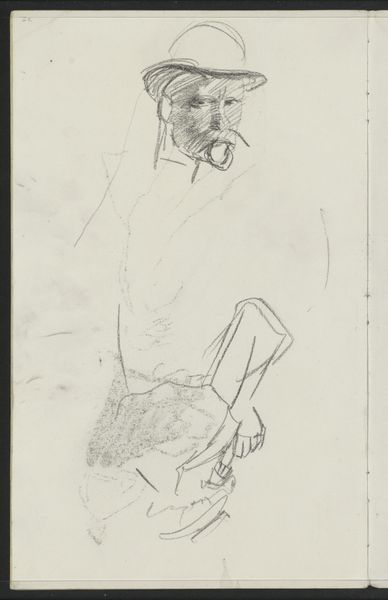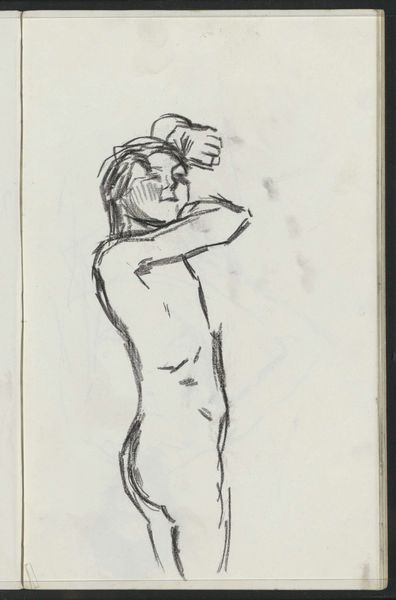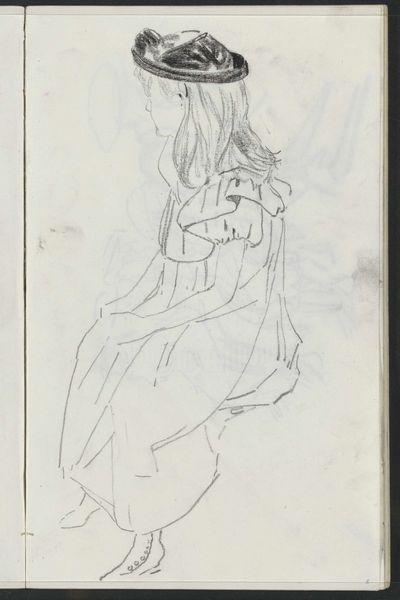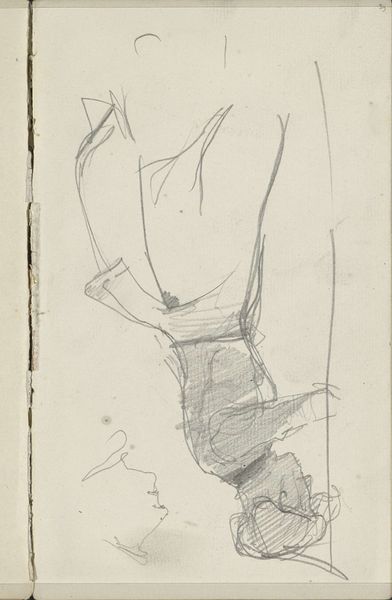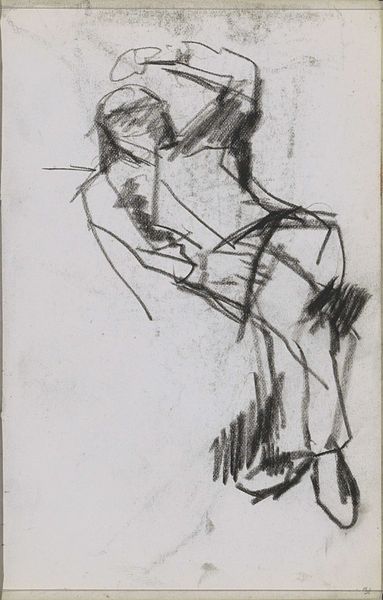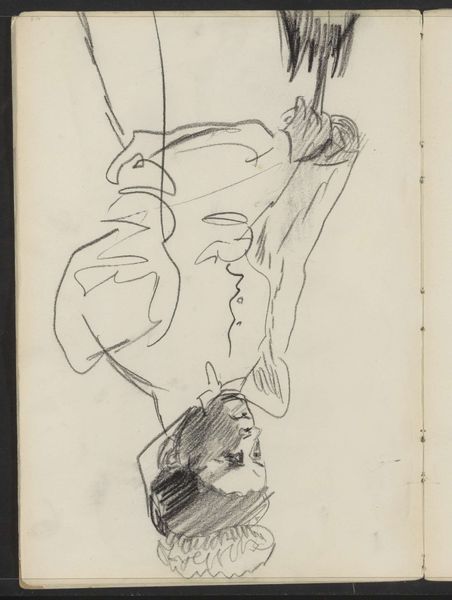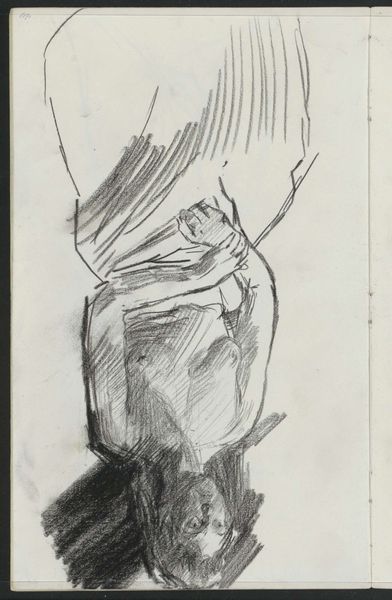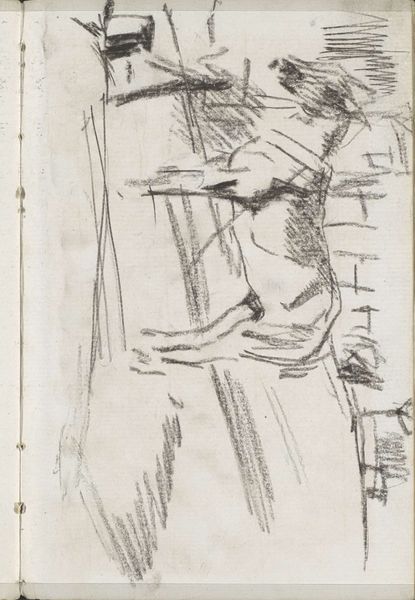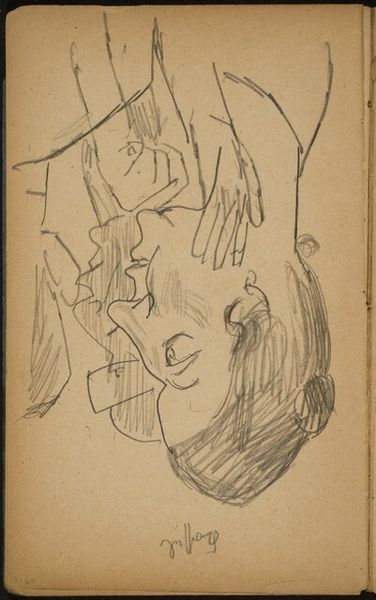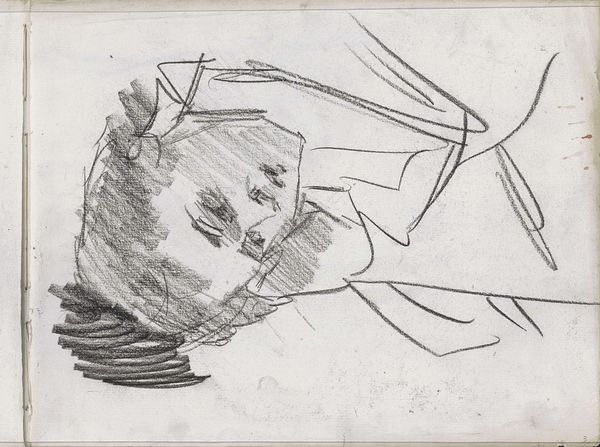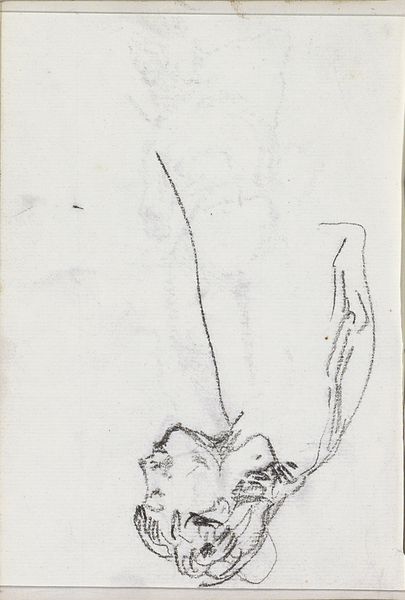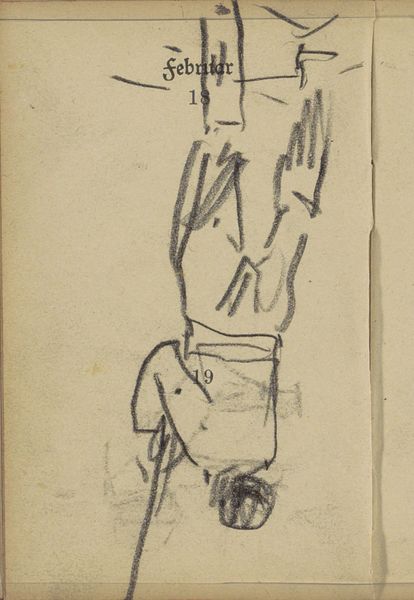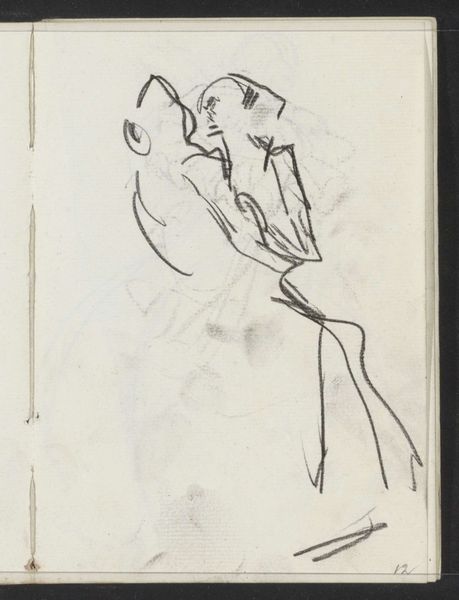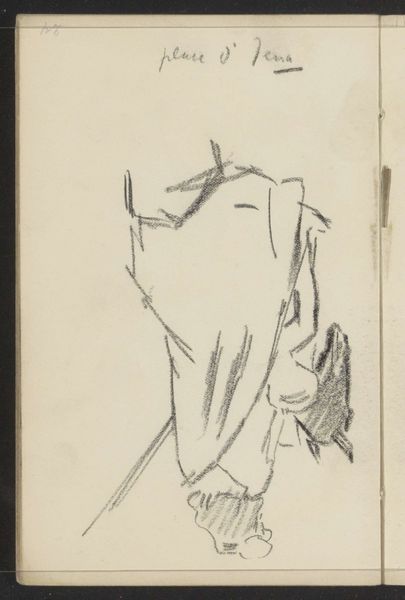
drawing, pencil
#
portrait
#
drawing
#
amateur sketch
#
pen sketch
#
incomplete sketchy
#
figuration
#
personal sketchbook
#
idea generation sketch
#
ink drawing experimentation
#
pen-ink sketch
#
pencil
#
line
#
sketchbook drawing
#
nude
#
sketchbook art
#
realism
#
initial sketch
Copyright: Rijks Museum: Open Domain
Curator: Here in Gallery 14 we’re looking at Isaac Israels' "Standing Female Nude." The dating is a bit broad, sometime between 1875 and 1934. It's a pencil and ink sketch, currently residing here at the Rijksmuseum. Editor: It has the feel of a preliminary study. A quick, confident sketch but with a definite intimacy. You can almost sense the artist observing and capturing a fleeting moment. Curator: Absolutely. Israels was deeply engaged with the figure throughout his career, and I think the seeming spontaneity here actually speaks volumes about societal expectations placed on women, especially regarding their representation. We see how female bodies have historically been subject to the male gaze in art and how contemporary artists have tried to subvert those dynamics. Editor: I see that reflected in the lines themselves. The lack of detail almost feels like a concealment. Note, for example, how the woman’s face is more rendered, perhaps a glimpse into her individuality, while the body remains more generalized. The woman, however, raising a hand behind her head, recalls classical depictions of Venus, subtly referencing art history while grounding the work in a modern sensibility. Do you read that continuity? Curator: It’s certainly part of the visual language. In its context, though, the image evokes a discussion around agency and objectification within artistic practice itself. In representing a female nude, what considerations did Israels make about power? Does the image celebrate the female form, or does it simply reiterate familiar tropes? The sketch raises these pertinent issues. Editor: The beauty is in the nuance. Those visible sketchbook markings, those tentative lines, suggest a journey of representation. He doesn't capture her likeness or pose so much as evoke an impression of femininity itself. Curator: Exactly, the imperfections become perfections in a way. Editor: A timeless echo through artistic traditions… it is interesting to experience it. Curator: I think understanding those tensions helps us see how artistic representation is never neutral.
Comments
No comments
Be the first to comment and join the conversation on the ultimate creative platform.
